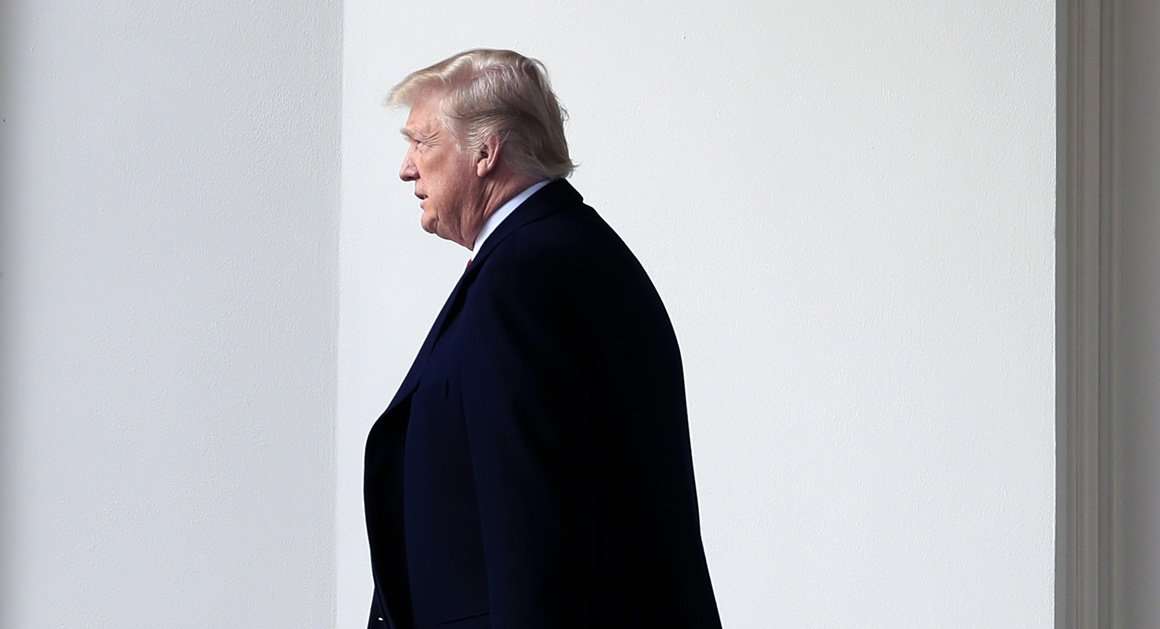The Trump administration produced a list of oligarchs linked to Russian President Vladimir Putin. | Alexander Nemenov/Getty Images White House to Congress: Russia sanctions not needed now
The Trump administration informed lawmakers Monday that new Russia sanctions called for in a bipartisan bill passed last year are not necessary yet because the measure is already "serving as a deterrent."
The announcement came as lawmakers in both parties nudged the administration to implement a sanctions legislation that passed overwhelmingly in July — with only five no votes in both the House and Senate. The sanctions bill requires the imposition of penalties by Monday against entities doing "significant" business with Moscow's defense and intelligence sectors, unless Congress is notified that prospective targets are "substantially reducing" that business.
A State Department spokesperson said by email that the administration is "using this legislation as Congress intended to press Russia to address our concerns related to its aggression in Ukraine, interference in other nations’ domestic affairs and abuses of human rights."
Potential targets of future penalties "have been put on notice, both publicly and privately, including by the highest-level State Department and other U.S. government officials where appropriate, that significant transactions with listed Russian entities will result in sanctions," the spokesperson added.
Sign up here for POLITICO Huddle A daily play-by-play of congressional news in your inbox. Email Sign Up By signing up you agree to receive email newsletters or alerts from POLITICO. You can unsubscribe at any time.
"Given the long time frames generally associated with major defense deals, the results of this effort are only beginning to become apparent. From that perspective, if the law is working, sanctions on specific entities or individuals will not need to be imposed because the legislation is, in fact, serving as a deterrent."
In addition to the sanctions on entities doing business with Moscow's defense and intelligence sectors, the sanctions law also called for the administration to produce by Monday a list of oligarchs linked to Russian President Vladimir Putin and a report on the consequences of sanctioning Russia's sovereign debt. The sanctions law was crafted partially in response to Russian meddling in the 2016 election.
The administration released the unclassified version of the oligarchs list late Monday, after its announcement on the non-issuance of new sanctions. The Treasury Department noted that the roster "is not a sanctions list" and that individuals listed do not "meet the criteria for designation under any sanctions program" as a result of their inclusion.
The list named 114 individuals who serve "senior political figures" in Putin's government, as well as 96 oligarchs with close ties to Moscow. It is unclear whether Congress received the sovereign debt report also due Monday, which is likely to contain classified information. The State Department spokesperson added: "Further details are contained in a classified report we have submitted to Congress."
White House deputy press secretary Raj Shah signaled earlier Monday that the administration would take steps to implement the sanctions measure in a timely fashion, telling CNN that the Treasury Department was expected to "take this process the next step forward."
The Senate Foreign Relations Committee's top Democrat, Sen. Ben Cardin of Maryland, declined to indicate the status of the sanctions bill's implementation, noting: "I am not going to discuss the classified nature of these discussions" conducted on Monday.
But Cardin suggested that he would expect continued communication with the administration on the progress of the legislation, vowing to "continue to conduct rigorous oversight to ensure that the Russian government’s ability to conduct this trade is significantly impeded."
"The U.S. should be prepared to impose sanctions when the law is clearly violated," Cardin said in a statement. "The administration should not rest in these efforts and I expect a frequent and regular dialogue on this issue."
The House Foreign Affairs Committee's top Democrat, Rep. Eliot Engel of New York, more pointedly blasted the administration for Monday's delay.
“The Trump administration had a decision to make whether they would follow the law and crack down on those responsible for attacking American democracy in 2016," Engel said in a statement. "They chose instead to let Russia off the hook yet again."

OracularLettuce on January 30th, 2018 at 03:02 UTC »
Trump "fighting back" against the allegations that he is a Russian puppet by doing the exact things you'd predict a Russian puppet would do.
tremble_and_despair on January 30th, 2018 at 01:39 UTC »
IDUnavailable on January 30th, 2018 at 01:38 UTC »
"Oh okay, sorry for bothering you" - Our current Congress, probably.